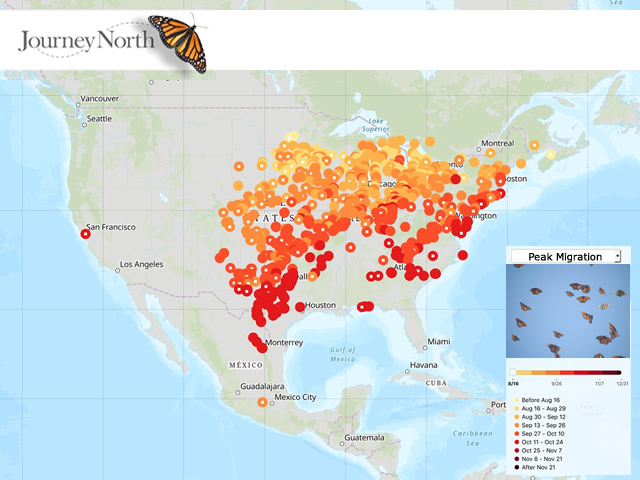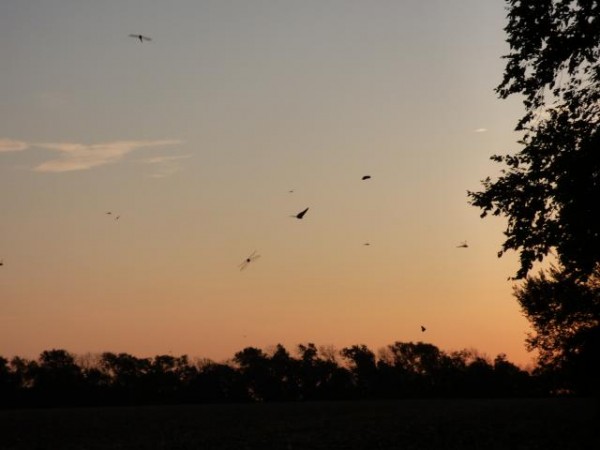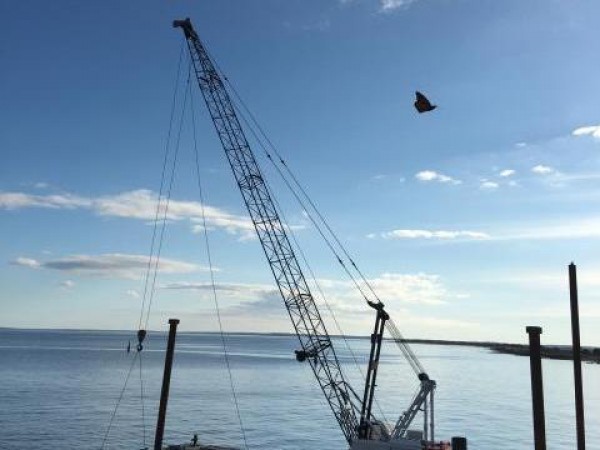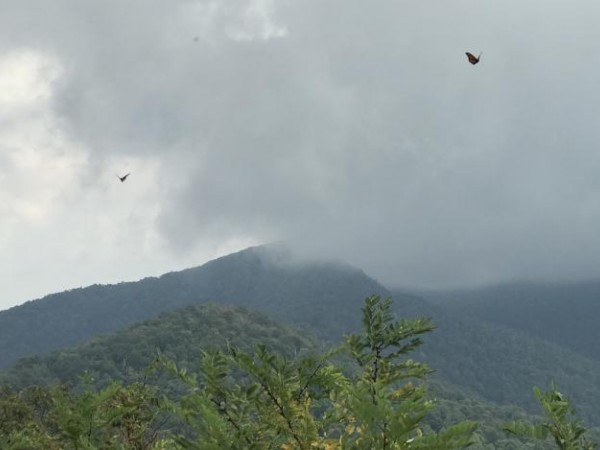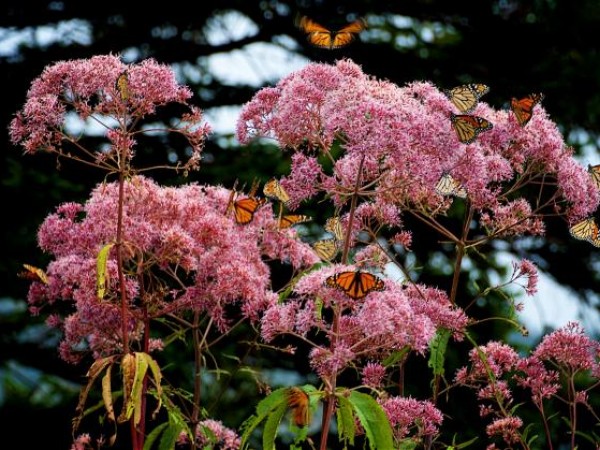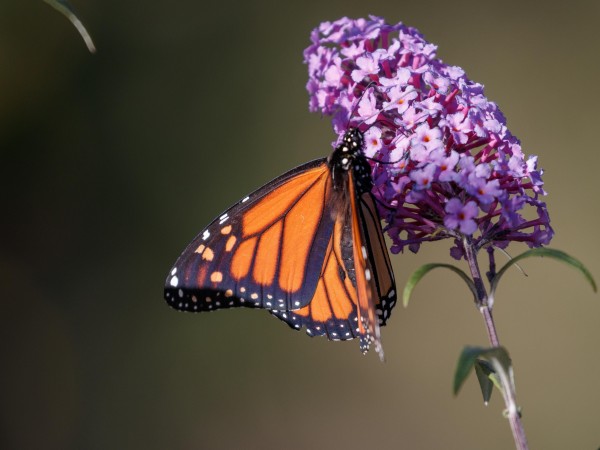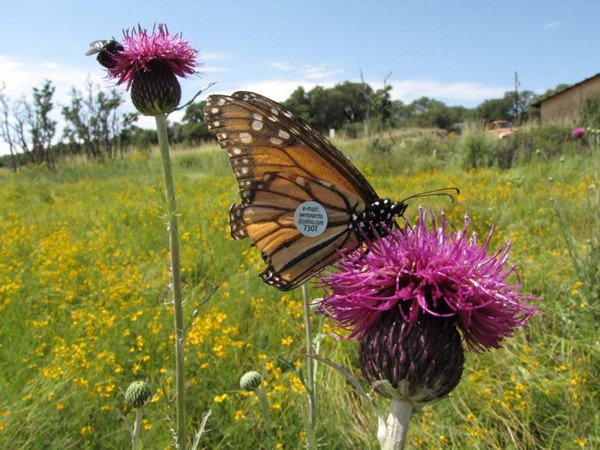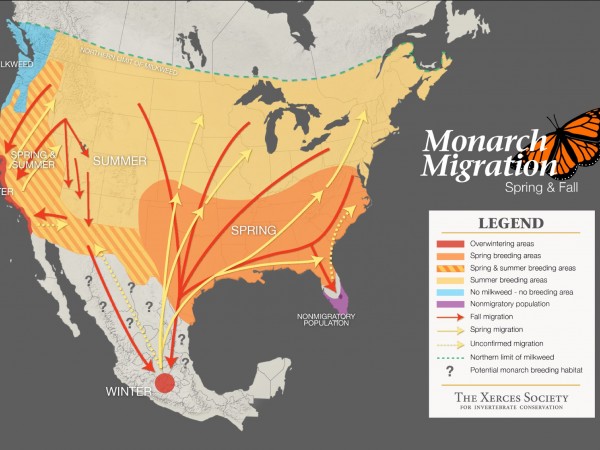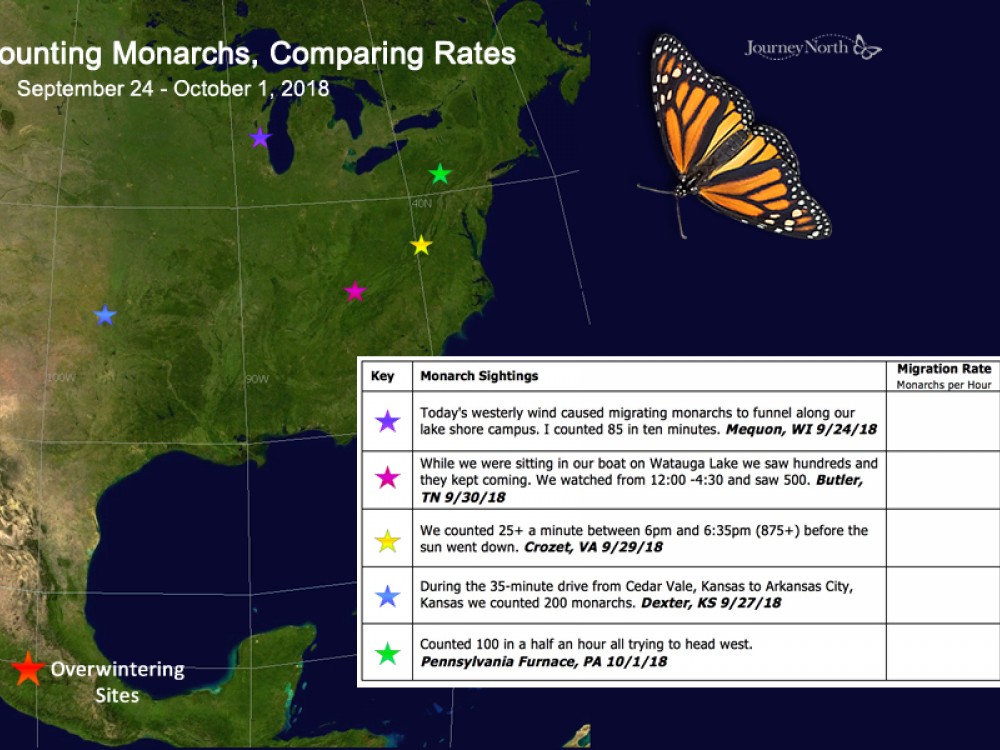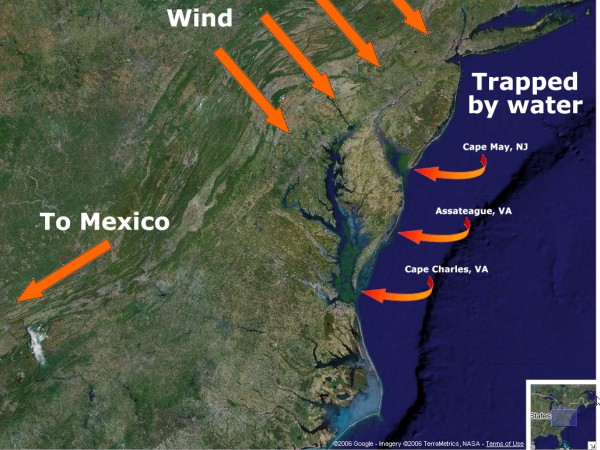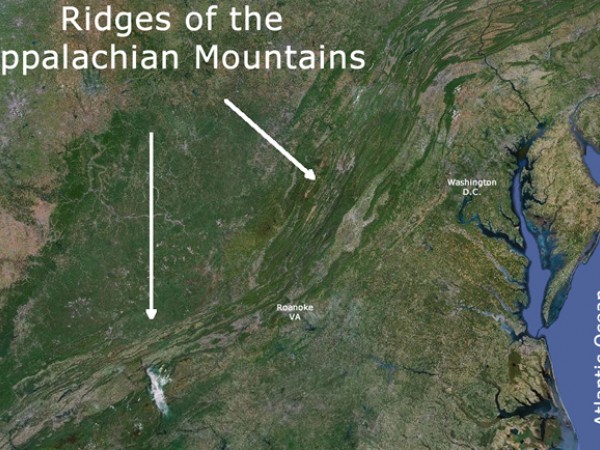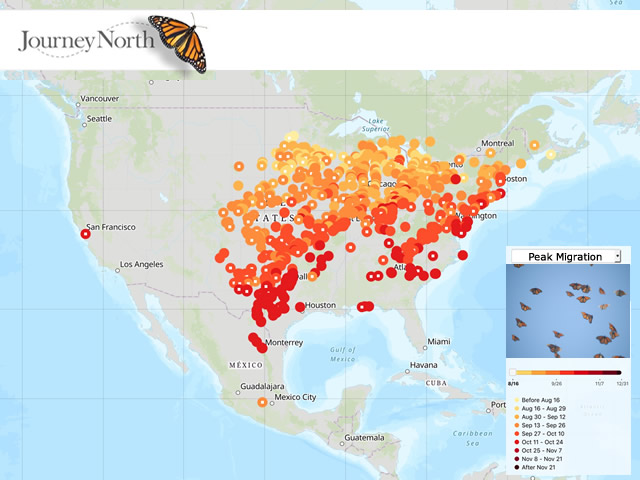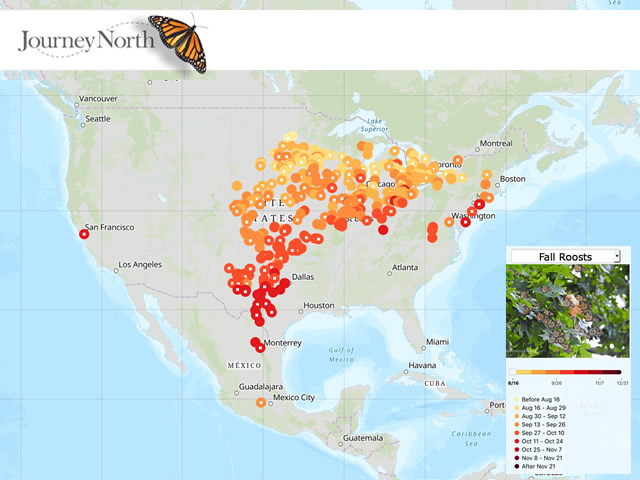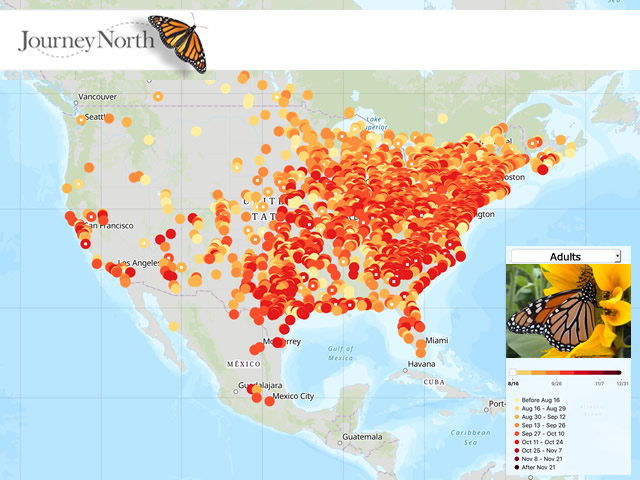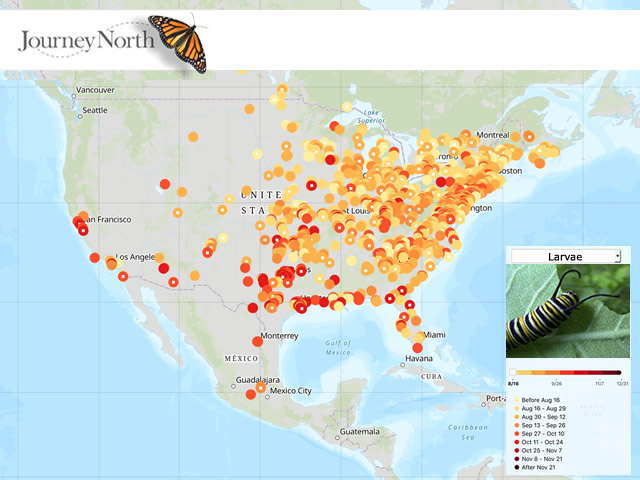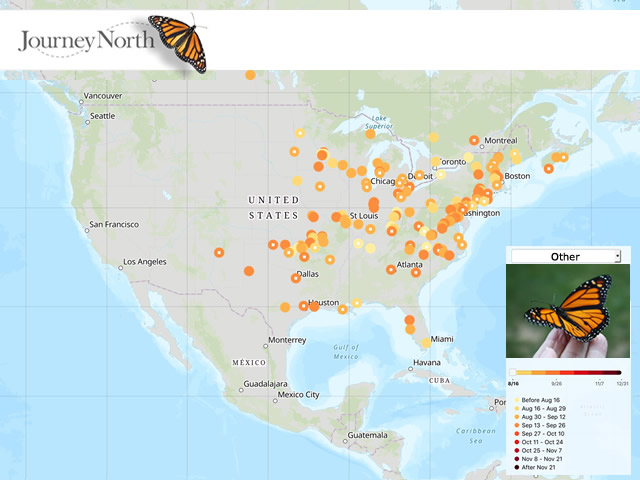Riding Ridges, Traveling Coastlines
Peak flights were witnessed this week along the ridges of the Appalachian Mountains and the Atlantic coastlines, marking the first strong pulse in the Eastern Flyway.
Put Your Work Aside and Go Outside
Journey North citizen scientist, Louise, had a message worth sharing more widely this week.
"The last two days have been spectacular.... I have learned that sometimes the only thing to do is to go outside and watch and enjoy. So I did! For the last two afternoons I have put my work aside and gone outside to simply be among them and feel the joy of their company...I let my yard fill with asters and goldenrods this year and let them grow to six feet...Migration is so tough - the least I can do is offer the monarchs a sheltered place to feed along their way...They are coming your way!" (link to report)
Regardless of where you live, take Louise's words to heart. Enjoy monarchs, hummingbirds and other migratory species as they come your way. Indeed, you are never too old, nor too young to enjoy monarchs. And, of course, don't forget to submit your stories and observations to Journey North.
Peak Migration Along Great Lakes
Migration rates peaking along the Great Lakes.
From Harrisville, MI: Frank exclaimed, "They keep on coming! Today, in changing wind directions, 1,301 monarchs were counted along the Lake Huron shoreline at Harrisville State Park in 8 hours." (09/26/2019) You can find his hour-by-hour count here.
Mid-West Still the Center of Monarch Roost Activity
From Town of Arlington, WI: Mark and Sue made their first roost count at Goose Point Sanctuary September 4. On 09/28/2019 they made what they predict will be their last count of approximately 925 roosting monarchs. Check out their full report here.
From Walton, KS: Linda noted, "Monarchs and dragonflies greet the sunrise. I counted 100+ monarchs that roosted overnight in an east/west hedgerow in the middle of the section, sheltering from 20+ mph south winds. Also counted 60 in a hedgerow yesterday evening at sunset a few miles south." (09/30/2019)
Traveling the Atlantic Coastline
The Atlantic coast is another major migration highway. North and west winds blow monarchs to the coast, and the butterflies travel down the shoreline to avoid the ocean. This results in some of the best monarch-watching in the eastern US.
From Orient, NY: Monica described, "While waiting to board Cross Sound ferry to New London, CT...A steady stream of monarchs. Spoke with one of ferry employees who said he too had noticed many of them today but not the past few days." (09/29/2019)
Flying High Over the Appalachian Mountain Ridges
Many Journey North citizen scientists are witnessing migration along the ridges of the Appalachian Mountains. It appears to be a sign of the first strong pulse in the Eastern Flyway. The Appalachians are one of the best migration hot-spots in the eastern United States. Monarchs follow the ridges of the mountains. They can use "ridge lift" to gain altitude and then glide effortlessly along the ridges toward Mexico.
From Canton, NC: Theresa counted approximately 241 monarchs and submitted this comment, "Very overcast and 73F at Pounding Mill today. First 30 min interval 12:45pm to 1:15pm, we counted 71 monarchs heading over the mountain side. As the clouds darkened and moved closer, we counted 170 monarchs in only 20 minutes pouring over the mountainside trying to stay ahead of the much needed rain." (09/28/2019)
From Tuckasegee, NC: Elizabeth observed, "From around noon through 4:45 p.m. we encountered dozens of monarchs along the Blue Ridge Parkway from Heintooga Ridge Road to Cherry Cove Overlook..and at various overlooks..[for a total of 241 counted]. A glorious day!" (09/27/2019)
Don't Forget to Read Western Monarchs 2019 Fall Report #5
Thank you for all your reports to Journey North!
Fall Monarch Migration 2019
Please report all monarchs you see: Adults, Eggs & Larvae, Overnight Roosts, Peak Migration Events



